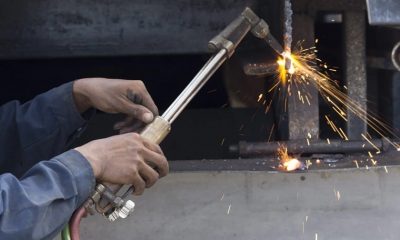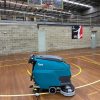Industrial Equipment
Benefits of Using Hand Tools from a Woodworker’s Point of View
Twenty years ago, I was first introduced to the beauty of woodworking thanks to my grandpa. I never imagined that I would be the one to inherit the long tradition that ran in our family, but apparently I had the talent and creativity that’s involved in this form of art. While other tradesmen rely on power tools thinking they can make work faster and boost profitability, I decided to follow my grandpa’s old-fashioned approach and make hand tools my most trusted companions. And I must say, I found that they have many advantages over their motorized counterparts.

First of all, peace and quietness! When you are deeply focused on your work, the last thing you need is for your tools to produce uncomfortable buzzing sounds. The beauty of woodworking is the relaxing state it puts your mind in – it’s almost close to what meditation can achieve. Not to mention how loud motorized tools can be dangerous for your hearing. Hearing loss is a common problem among woodworkers and other people who regularly use power tools. Moreover, quiet tools and equipments won’t annoy your family nor disturb the peace in your building or neighborhood.
Another reason why hand tools and equipments should be the preferred choice for woodworking is that they allow better dexterity. And dexterity is crucial if you want to create intricate wood patterns and shapes. With hand tools you can regulate how much pressure is applied to cutting or shaping the wood, thus minimise potential mistakes. With power tools you don’t have that kind of control. Once you turn them on, it’s like they work by themselves. Moreover, hand tools and equipments enable one to work with types of wood that’s considered to be difficult.
Last but not least, hand tools might actually preserve your health. Like we already mentioned, they are better for your hearing as opposed to the loud and obnoxious power tools. But there’s another health advantage to them as well. In recent years, medical studies have shown that wood dust is associated with a number of health problems ranging from dermatitis, to eye infections, allergies, asthma and even cancer. Because hand tools have significantly less power, they produce considerably less sawdust. And the sawdust they do create ends up on the worktable and not all around the workshop. This way, you’ll make sure there won’t be an ugly coat of dust that you’ll be breathing in.
Writing for the blog since 2012, Chris simply loves the idea of providing people with useful info on business, technology, vehicles, industry, sports and travel – all subjects of his interest. Even though he sounds like quite the butch, he’d watch a chick flick occasionally if it makes the wife happy, and he’s a fan of skincare routines though you’d never have him admit that unless you compliment his impeccable skin complexion.


























